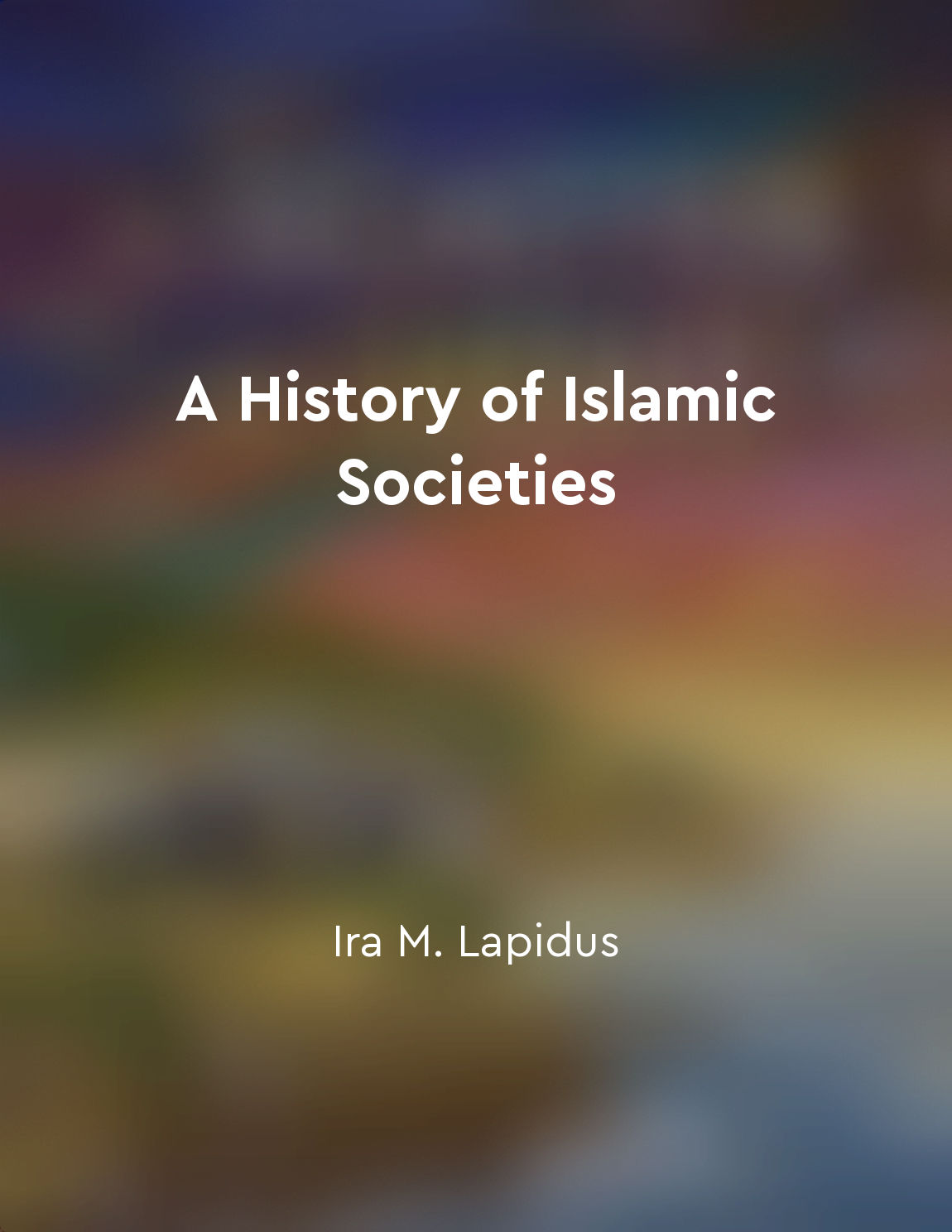Understanding the history of Islamic societies is key to appreciating their complexity from "summary" of A History of Islamic Societies by Ira M. Lapidus
To truly grasp the intricate nature of Islamic societies, one must delve into their historical foundations. By understanding the history of these societies, one can begin to appreciate the complexities that have shaped their development over time. The rich history of Islamic societies is marked by a multitude of factors that have influenced their social structures, cultural practices, and political systems. From the early days of the Islamic expansion to the later periods of flourishing empires, each era has left its mark on the fabric of these societies. One cannot fully comprehend the diversity within Islamic societies without recognizing the vast array of influences that have shaped them. Whether it be the spread of Islam through conquest and trade, the blending of indigenous traditions with Islamic beliefs, or the interactions with other cultures and religions, these factors have all played a role in shaping the complexity of these societies. Moreover, the history of Islamic societies is not monolithic, but rather a tapestry of different experiences and perspectives. The diversity within these societies, in terms of ethnicity, language, and beliefs, adds another layer of complexity that must be understood in order to appreciate the full scope of their intricacies. By exploring the history of Islamic societies, one can gain insight into the various dynamics at play, from the rise and fall of empires to the evolution of religious practices and social norms. This deeper understanding allows for a more nuanced appreciation of the complexities that define these societies and their place in the broader world.Similar Posts
The failures of Western intelligence agencies
The intelligence agencies of the West had an abundance of information at their disposal, yet they failed to connect the dots. T...
The integration of diverse fields sheds light on different facets of hadith narratives
The study of hadith narratives benefits greatly from the integration of diverse fields. By incorporating various disciplines su...

The book provides historical context to current events in the Middle East
Thomas L. Friedman expertly weaves together past and present events in the Middle East, creating a tapestry of historical conte...
Hadith serve as a source of inspiration for Muslims
Hadith plays a vital role in the lives of Muslims, serving as a wellspring of inspiration that guides them in their daily affai...
Interactions with people of other faiths
In the course of his prophetic mission, the Prophet Muhammad (peace be upon him) interacted with people of various faiths. Thes...

